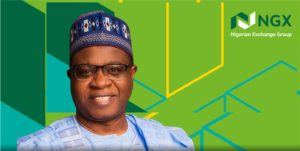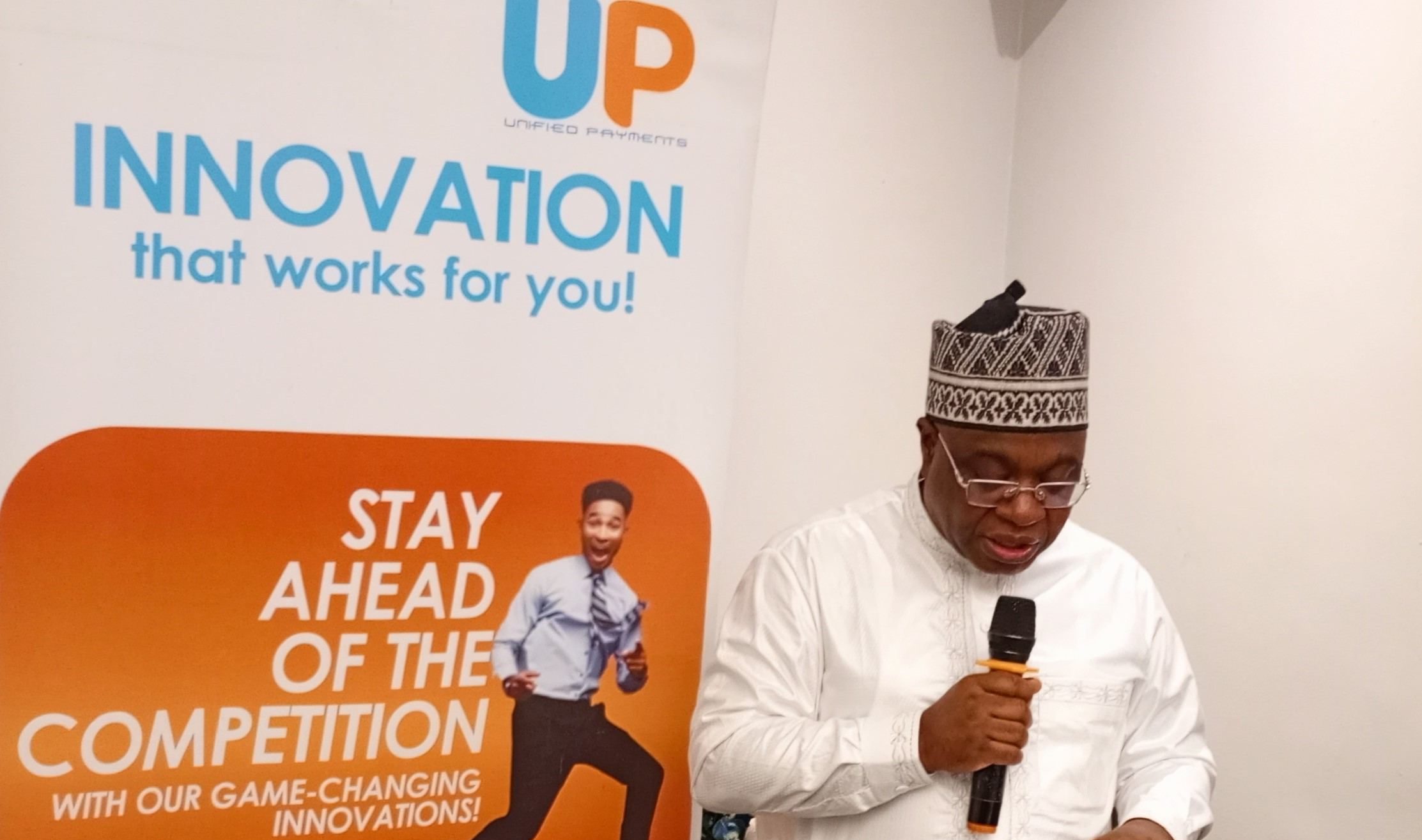Business Journal 2024 Fintech Roundtable

OpenLife Nigeria reproduces a keynote speech by Alhaji (Dr) Umaru Kwairanga, Group Chairman, Nigerian Exchange Group, NGX, at the 2024 Nigeria Fintech & Financial Inclusion Roundtable, organized by Business Journal Media Group on April 26 at Radisson Hotel, Lagos.
Speaking on a theme The Role of Fintech & Financial Inclusion in Citizen Empowerment and Economic Growth, Dr Kwairanga, a thoroughbred capital market expert with over 30 years of excellent corporate governance experience in banking, pensions, manufacturing and commercial sectors, argued that most “Nigerian adults” are not financially literate with corresponding consequences of lack of “Ability to spend and manage risks prudently.”
Nonetheless, Dr Kwairanga noted that “Despite these challenges, Nigeria has been at the forefront of the meteoric rise of fintech in Africa, fueled by a young and dynamic population, rapid smartphone adoption, a focused regulatory drive to increase financial inclusion and cashless transactions, and ample funding from venture capital.”
He, however, assured that all hope is not lost and called for collaborations among stakeholders saying that: “While the promise of fintech and financial inclusion is undeniable, realizing its full potential will require a concerted effort from all stakeholders – governments, financial institutions, technology companies, civil society organizations, and regulators.”
His thoughts are reproduced below unedited
Distinguished guests, esteemed regulators, colleagues, ladies and gentlemen.
It is my absolute pleasure to stand before you today and discuss the pivotal role of fintech and financial inclusion in driving citizen empowerment and economic growth in Nigeria.
The State of Financial Inclusion in Nigeria
Nigeria’s financial inclusion rates have gradually improved, yet still fall short of the targets adopted in our 2012 national financial inclusion strategy and the revised NFIS 2018.
As of 2021, financial inclusion stands at 64.1%, according to EFInA’s findings. While commendable progress has been made, projections by KPMG indicate it could take about 40 years to reach a 100% financial exclusion rate, given the average reduction over the past decade.
The banking sector’s efforts have been complemented by non-banking institutions like Fintech, Mobile Money, Payment Service Banks, and supporting initiatives such as SANEF and digital IDs.
However, challenges persist, particularly in closing the gaps for the youth, those with low educational attainment or income, and the urban-rural divide, where only 56% are financially included in rural areas – higher than peer countries and the Sub-Saharan Africa region.

According to the IMF, many East African countries boast higher financial inclusion rates beyond 80% through the proliferation of non-bank accounts, particularly mobile money, which is still relatively scant in Nigeria.
A recent survey, referenced by IMF, also revealed that more than half of Nigerian adults have limited financial literacy and capability, particularly in financial planning. About two-thirds of respondents have a low-to-medium ability to spend and manage risks prudently, while many rely on informal networks in times of crisis.
More than three-fourths are also unaware of specific financial services, including mobile money, which helps explain the relatively low mobile money account ownership in our country.
The Promise of Fintech in Driving Financial Inclusion
Despite these challenges, Nigeria has been at the forefront of the meteoric rise of fintech in Africa, fueled by a young and dynamic population, rapid smartphone adoption, a focused regulatory drive to increase financial inclusion and cashless transactions, and ample funding from venture capital.
From a report published by Partech in 2022, the number of tech startups securing funding in Africa surged by 108.7%, growing from 55 in 2015 to 653 by 2022. Equally, total equity funding in the same period increased by 167.3% from US$277 million to $4.9 billion.
Remarkably, the bulk of this financing, about 73%, was allocated to startups in Nigeria, South Africa, Kenya, and Egypt.

Nigerian fintechs have secured over $1bn since 2018, and the country also leads the unicorn counts in Africa with four out of seven, namely Interswitch, Flutterwave, OPay, and Andela.
This is evident in the strong growth seen in Nigerian payments. According to the Central Bank of Nigeria, total electronic payment transactions in 2022 hit an astonishing N1,550 trillion, a remarkable 2,572% rise from N58 trillion in 2017.
By leveraging cutting-edge technologies like mobile platforms, big data analytics, and distributed ledger systems, fintech has the power to democratize finance, breaking down barriers and extending access to financial services to the underserved and unbanked.
NGX Group’s Strategic Initiatives
At NGX Group, we are strategically focused on leveraging this fintech success in the capital market. Recognizing the potential of fintech in boosting retail investor participation, we aim to ensure that the average Nigerian benefits from the myriad of opportunities available for wealth creation in the capital market.
To enhance access to the market for retail investors, we launched the USSD code *5474# in partnership with leading telcos, which has gathered commendations from stakeholders. Dialing the code enables investors to access stock prices, daily gainers and losers, and even initiate the process of opening a trading account.
We are also collaborating with technology companies and partners to develop a state-of-the-art platform to support digital public offerings.
Our track record in this area is commendable, as we saw over 150,000 new retail investors participate in the capital market during the MTN public offering in 2021.
NGX Group is also working closely with regulators and the government on bringing new products to the market, such as tokenized assets with blockchain technology and depository receipts.
The Path Forward: Collaboration and Responsible Innovation
While the promise of fintech and financial inclusion is undeniable, realizing its full potential will require a concerted effort from all stakeholders – governments, financial institutions, technology companies, civil society organizations, and regulators.
We commend the efforts of policymakers and regulators, particularly the Securities and Exchange Commission and the Central Bank of Nigeria in creating an enabling regulatory environment that fosters innovation while safeguarding consumer protection and financial stability.
Public-private partnerships will be crucial in developing and implementing strategies to promote financial literacy and digital skills, ensuring that no one is left behind in the digital revolution.
Financial institutions must embrace change, adapting their business models and leveraging fintech solutions to better serve the needs of underserved communities. At the same time, they must prioritize responsible innovation, ensuring that new products and services adhere to the highest standards of security, privacy, and ethical conduct.
Conclusion
NGX Group, as a member of the financial inclusion steering committee of the SEC, remains committed to harnessing the power of fintech and collaborating with all relevant stakeholders as we aim to contribute significantly to driving the sustainable development of our dear country and closing the financial inclusion gap.
Financially included citizens are better equipped to invest in their education, healthcare, and personal development, laying the foundation for a more skilled and productive workforce.
On a macroeconomic level, financial inclusion has been shown to stimulate economic growth, reduce income inequality, and foster social stability. By expanding the productive capacity of our nation and unlocking the full potential of its citizens, financial inclusion serves as a catalyst for sustainable and inclusive economic development.
Ladies and gentlemen, the path towards a more financially inclusive and economically prosperous Nigeria is not without its challenges. But by harnessing the power of fintech and fostering collaboration among all stakeholders, we can unlock a future where every citizen, regardless of their background or circumstances, has the opportunity to participate fully in the financial system and contribute to the growth and development of their communities.
As we stand at the precipice of this transformative era, let us embrace the spirit of innovation and inclusivity that has brought us to this point.
Let us work together to build a nation where financial empowerment is not a privilege, but a fundamental right – a world where every individual has the tools and resources they need to shape their own destiny and contribute to the economic success of Nigeria.
Thank you.






